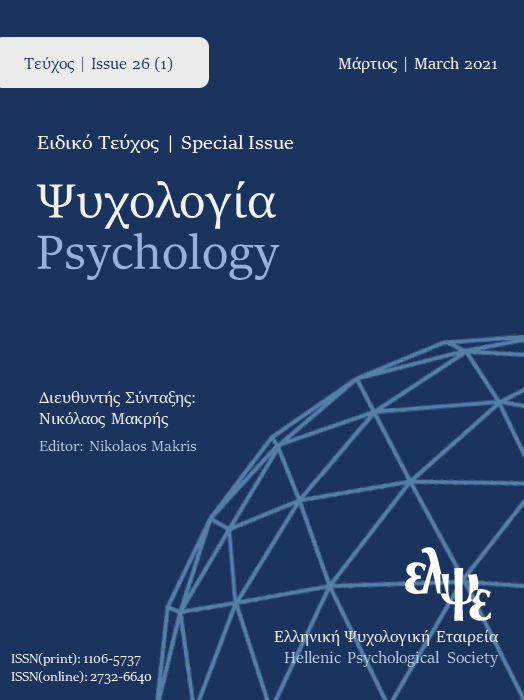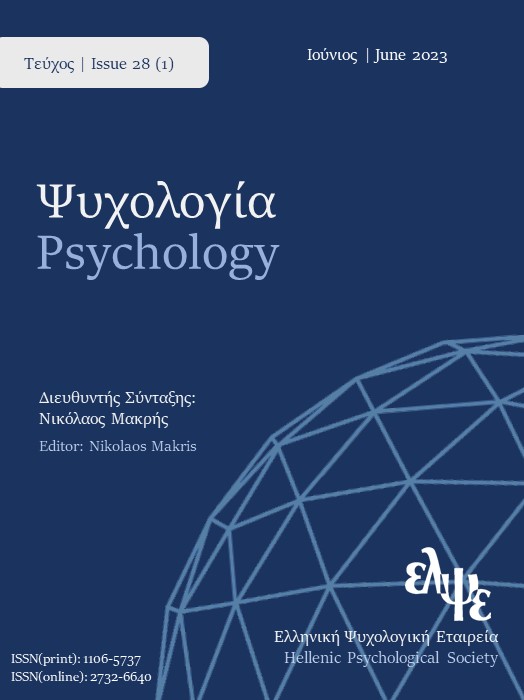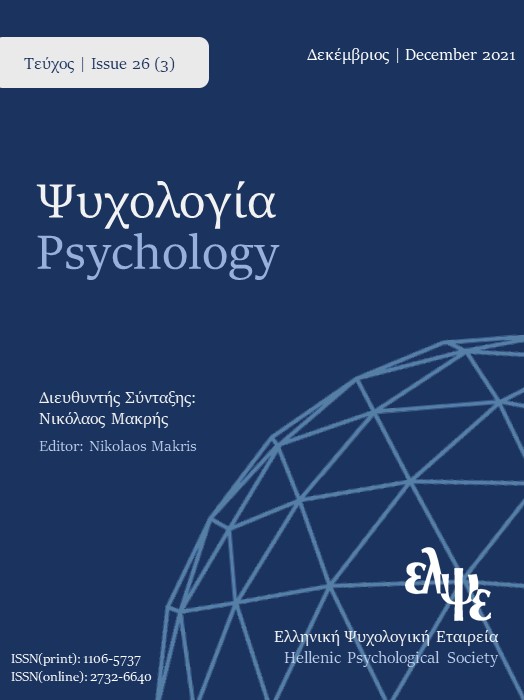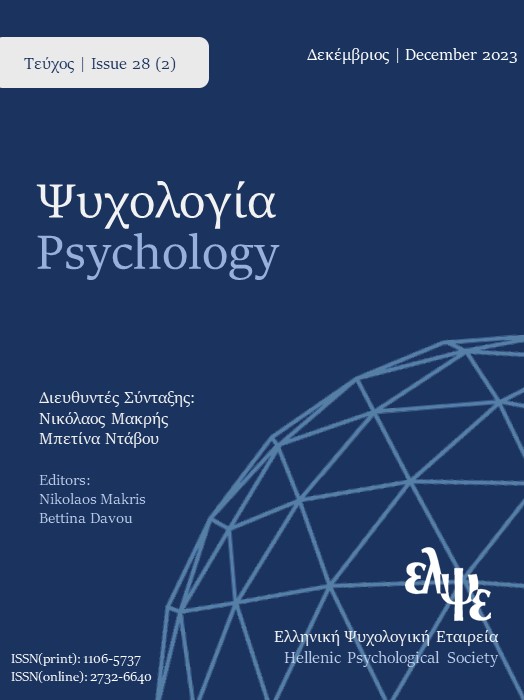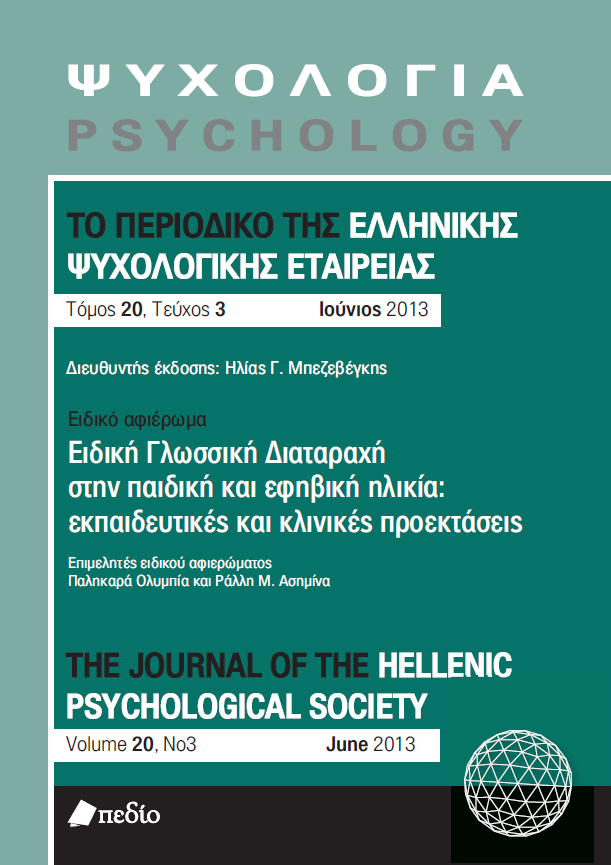Self-reported spelling strategies by school age children with and without spelling difficulties
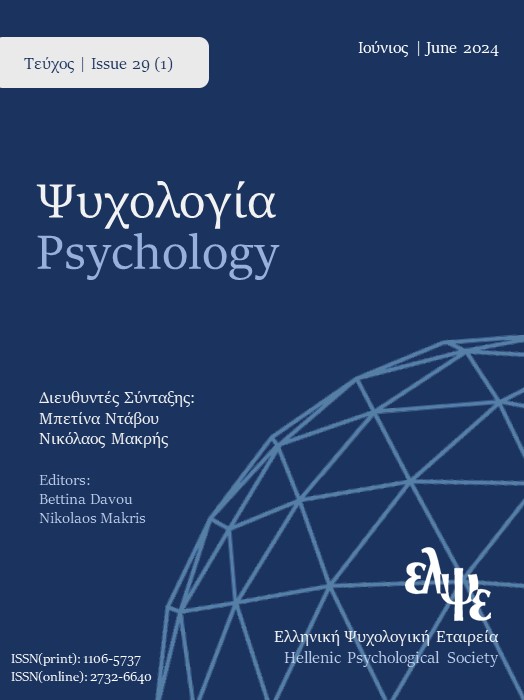
Abstract
The aim of the present study was to a) examine the self-reported spelling strategies of Greek-speaking children with andwithout spelling difficulties and b) to correlate the type of strategy with their levels of their spelling accuracy as well as the degree of prediction of accurate and inaccurate spelling reports. Eighty-seven children were selected for inclusion in three groups, a group of 22 6th graders with spelling difficulties (SD), 33 typically developing 6th graders, comprising the first control chronologically age-matched group (CGI), and 32 4th graders, a spelling-age matched group, comprising the second control group (CGII). Individual semi-structured interviews were conducted to detect verbal self-reports regarding the spelling strategies they used for spelling the words and their morpheme constituents. The whole word spelling strategies that were reported more frequently were retrieval, morphological and phonological. Children with spelling difficulties and their younger controls reported retrieval and phonological strategies more frequently. The chronological age-matched children more frequently reported retrieval and morphological strategies. Regarding self-reports for the morphological components, participants’ answers were grouped by the properties of each morpheme discussed. When they were asked about the lexical morphemes, the majority of the participants reported retrieval and morphological strategies. Regarding the derivational suffixes, the majority of the participants expressed a difficulty in reporting strategy use. When they were asked about the word’s inflectional suffixes, the majority of the participants reported the rule strategy. Retrieval and morphological strategies predict correct spellings in words and lexical morphemes and correlate with higher spelling accuracy,whereas phonological strategies predict misspellings and correlate with lower spelling accuracy.The results of this study show the importance of centralizing in children’s spelling choices and have implications regarding the goals and practices for teaching spelling in school settings.
Article Details
- How to Cite
-
Pantazopoulou, E.-J., Polychroni, F., Diakogiorgi, K., & Ralli, A. M. (2024). Self-reported spelling strategies by school age children with and without spelling difficulties. Psychology: The Journal of the Hellenic Psychological Society, 29(1), 241–270. https://doi.org/10.12681/psy_hps.30831
- Section
- RESEARCH PAPERS

This work is licensed under a Creative Commons Attribution-ShareAlike 4.0 International License.
The journal PSYCHOLOGY adopts a Platinum open-access policy. Submission, processing or publication costs are waived by the Hellenic Psychological Society. Papers published in the journal PSYCHOLOGY are licensed under a 'Creative Commons Attribution-ShareAlike 4.0 International' licence. The authors reserve the copyright of their work and grant the journal the right of its first publication. Third-party licensees are allowed to use the published paper immediately after publication as they wish, provided they retain the defined by the license copyright formalities, regarding the reference to its author(s) and its initial publication in the journal PSYCHOLOGY. Moreover, any adjusted work should be shared under the same reuse rights, so with the same CC license.



